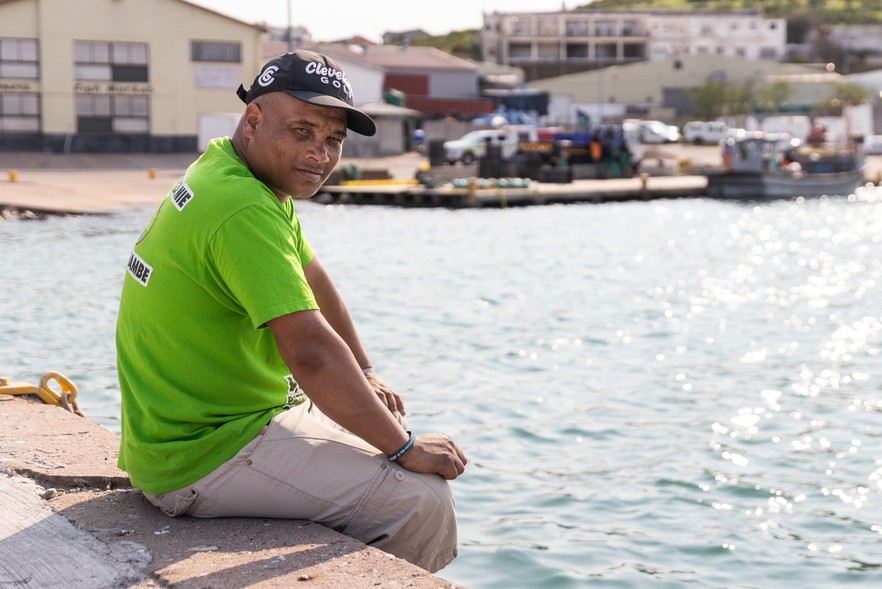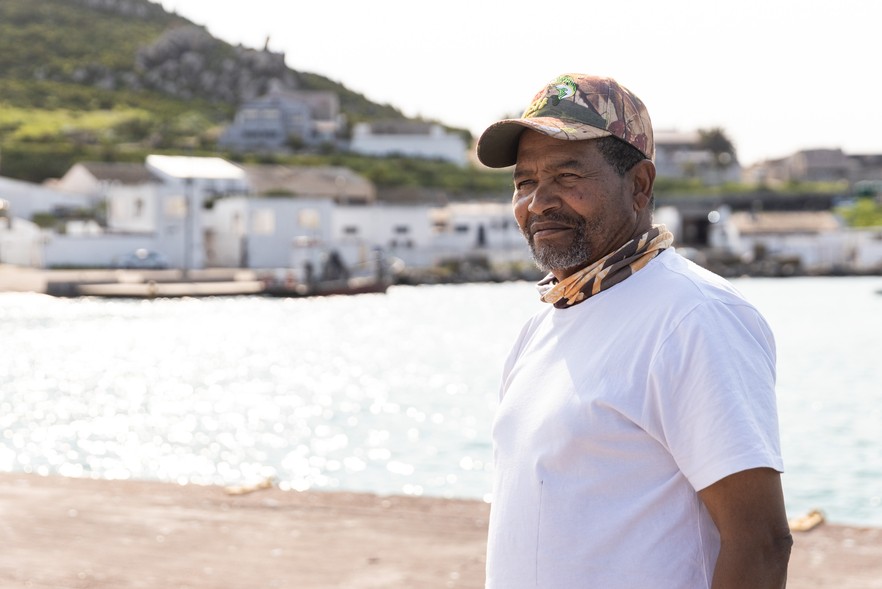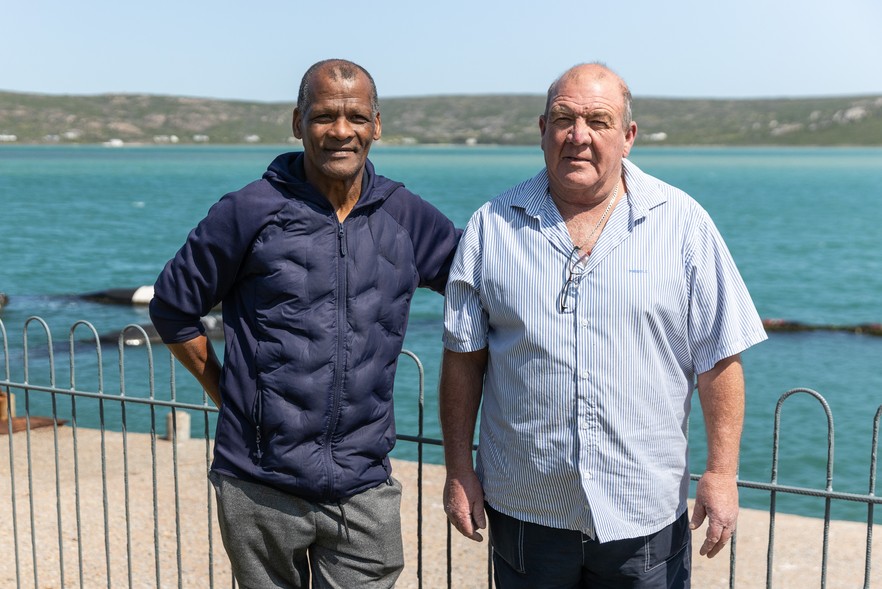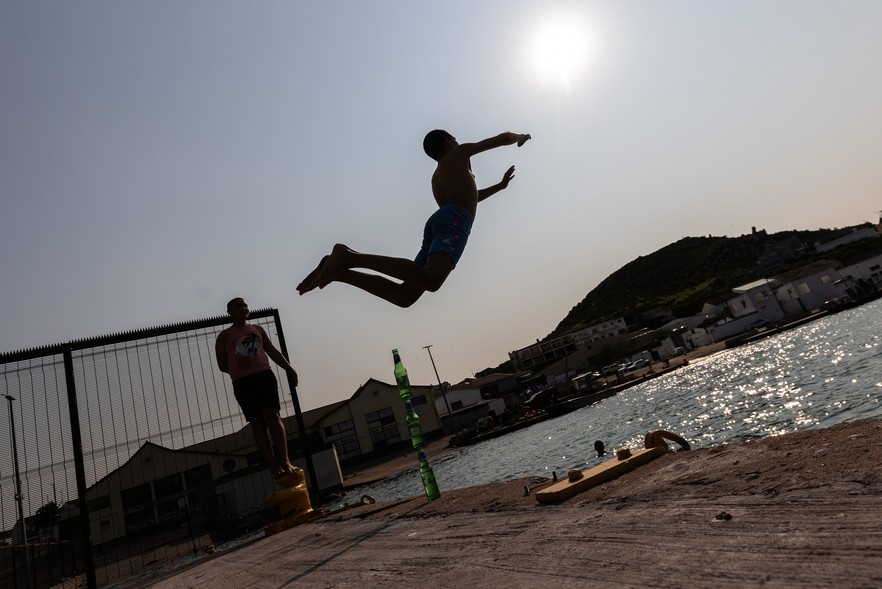West Coast fishers say fishing policy is crippling them
Saldanha and Langebaan fishers say they barely make a livelihood from their quotas
Saldanha fisher Gerald Zacharias says that small-scale fishing is no longer a viable option for the next generation.
- Small-scale fishers from Saldanha and Langebaan on the West Coast say they are not allowed to catch enough fish or use enough boats to sustain themselves.
- In Langebaan, fishers have not worked for about seven months of the year due to delays in permits and other problems.
- Saldanha cooperative members did not get permission to fish all the species they applied to catch.
- Fishers have asked to meet the new minister for fisheries Dion George.
Small-scale fishers on the West Coast say they are worse off than ever despite being granted 15-year fishing rights through co-operatives last year.
The fishing rights were granted after 62 small-scale fishing cooperatives were established in the Western Cape, after years of temporary arrangements.
But fishers from Saldanha and Langebaan say they were not allocated enough fish species or enough boat permits to make a living.
When the 15-year agreement for cooperatives was announced, then-Minister Barbara Creecy said it signified “the formal inclusion of Western Cape fishing communities, whose livelihoods have been intertwined with fishing for centuries”.
Rights had already been granted to cooperatives in the Northern Cape, KwaZulu-Natal, and Eastern Cape in 2018, 2019 and 2020 respectively.
Species allocations
The Saldanha cooperative was allocated permits for crayfish, seagrass and linefish – snoek and seabream (known as hottentot).
Christie Links, chairperson of the Saldanha Bay cooperative, said fishers had applied for other species which would really make a difference to their income, such as black mussels, red bait and white mussels, and especially kelp, but these were refused. Kelp (known as “bamboes”) is harvested for agricultural products like fertilisers and animal feed and also to extract agar, a jelly-like substance used in the food industry.
“All the species in our area from which we know we can make a living, we were refused,” said Links.
Fishers play an important role in their communities, said Saldanha fisher Gerald Zacharias. “When they see we come out with fish, people are very happy.”
The refusal of their applications for various species was impoverishing fishers, he said. “Life is getting expensive and the children need school shoes.”
Christie Links, chairperson of the Saldanha Bay cooperative, has been a fisher for well over 40 years.
Boat allocations
The number of boats that can be used by the Langebaan cooperative at any one time restricts the fishers’ ability to make a living. With the new small-scale policy, fishers were only given netfish permits for three boats, whereas they had been registered for 12 boats. The boats are used to catch harder (a species of mullet), their main source of income.
Chairperson of the Langebaan cooperative Tommie Perzens said it took four months, from February to June, before their permit for harder was approved. Then they worked for just over a month before they had to get a security certificate from the SA Maritime Safety Authority to be able to renew their boat licences. They are currently waiting for these. He said these delays have crippled small-scale fishers.
Impact of Marine Protected Areas
The fishers used to fish under special conditions and on a rotational basis in the Langebaan lagoon, which is restricted in certain areas as a Marine Protected Area. This followed a court ruling from 2016, which ordered that the “restrictive conditions” stopping fishers from fishing in part of the protected area were “arbitrary and irrational”, constituted unfair discrimination on the grounds of race, and were unconstitutional. The court said the relevant government departments had to consult with the small-scale fishers.
But when the small-scale fishing policy was officially introduced and the Western Cape cooperatives set up last year, the rotational agreement fell away. The Langebaan fishers said to GroundUp that they wanted the rotational agreement to be reinstated, because their livelihoods depended on it.
Langebaan cooperative vice-secretary Hermann Conrad said that netfish (harder) provided the “daily income” of the fishers for generations. They used to go out daily in the lagoon during the day or night to catch the fish. “That brings food to the table and generates some income for the family,” he said.
But now, with permits for only three vessels, some fishers will have to sell their boats. “They’ve only allowed for a certain amount of people to work,” said Conrad.
“Over the years, with the little that we got we put away savings to buy our own equipment. A lot of money has been invested to buy your own equipment, your own boats, your own motors. And now, boats are standing at home and there is no work for those boats,” said Perzens.
Conrad said other than harder, most of the species they have been allocated are inaccessible to them because of the MPA. “The species we were allocated, we are not allowed to access in the area we are situated in which we have fished for generations already,” said Conrad.
Tommie Perzens, chairperson of the Langebaan cooperative, and vice-secretary Hermann Conrad have not been able to work for about seven months this year because of permit delays.
Quota allocations
The difficulties for fishers are exacerbated by the annual quota for the species they have been allocated. The 2023/24 West Coast Rock Lobster quota was reduced by 16% from the previous year. Links said their crayfish allocation, now at about 30kg per person nearshore and 12kg offshore (42kg total), was too little to support the fishers, bringing in about R8,900 for the season per person.
Links said that in their area over the years, the fish stocks have dropped. “The fish is not always as it was back in the day,” he said.
But this was not the fault of Saldanha small-scale fishers, who he believed helped protect the resource.
“We have one line for one fish. We catch one fish at a time and if it is too small, we throw it back,” said Links.
He said that fishers wanted to be “seen and heard” and that they wanted to engage the new minister.
GroundUp sent questions to the minister a week ago, which were acknowledged, but had not been answered at the time of publication.
Children play at the Pepper Bay pier in Saldanha Bay.
Support independent journalism
Donate using Payfast

Don't miss out on the latest news
We respect your privacy, and promise we won't spam you.
Next: Are South Africa’s dams safe? Government does not know
Previous: E-hailing drivers on strike in Cape Town
Letters
© 2024 GroundUp. This article is licensed under a Creative Commons Attribution-NoDerivatives 4.0 International License.
You may republish this article, so long as you credit the authors and GroundUp, and do not change the text. Please include a link back to the original article.
We put an invisible pixel in the article so that we can count traffic to republishers. All analytics tools are solely on our servers. We do not give our logs to any third party. Logs are deleted after two weeks. We do not use any IP address identifying information except to count regional traffic. We are solely interested in counting hits, not tracking users. If you republish, please do not delete the invisible pixel.




